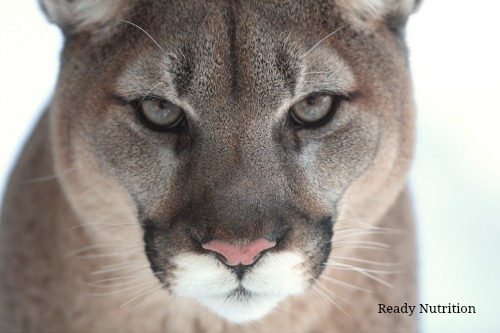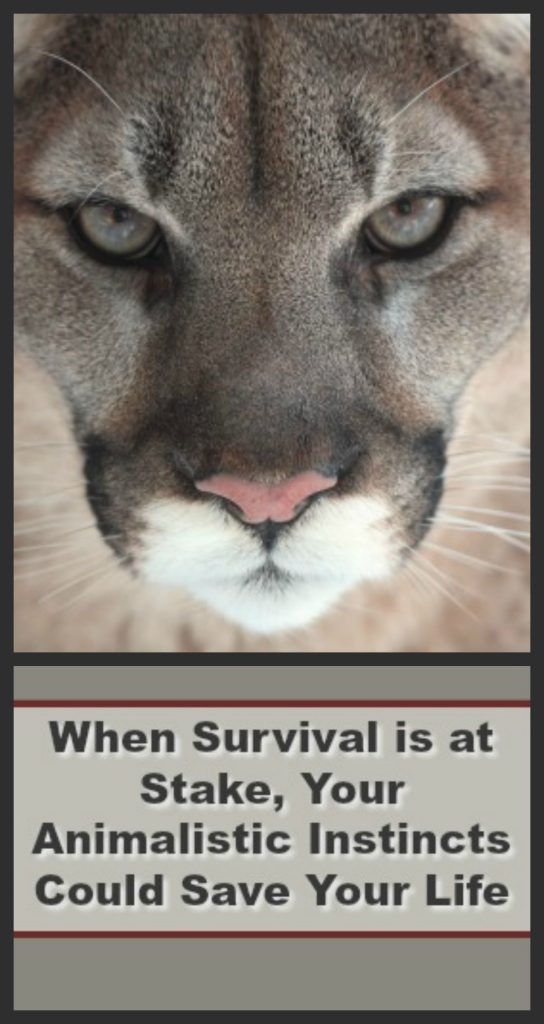
Look to Nature to Learn About Survival
 One of the doctrines that he held dear was to look to nature for the forms used in practice, as well as for philosophies on life and how it works.
One of the doctrines that he held dear was to look to nature for the forms used in practice, as well as for philosophies on life and how it works.
I have written several articles on the advantages to studying animals, both in the wild and those you have with you as pets and even livestock. Let’s focus on a few of the animals and take a closer look.
The Cat: As you already know, the cat is my favorite animal…and this fact has targeted me for innumerable insults and jibes. No matter. There is a reason the cat is my favorite: I had the opportunity to work as a volunteer for fish and wildlife when I was a teenager, and I took care of a mountain lion every day for four years. He had lost a foreleg and been found. For all intents and purposes, he was mine. Eventually, he was placed with a man who had his own private preserve just for injured animals that couldn’t be in the wild anymore…not for any kind of public viewing. I learned much from that mountain lion: he gave me an understanding of cats that I could never have found on my own.
The cat is the ultimate solitary hunter. He relies on keen eyesight and smell, speed, and good judgment. What can we learn from watching him? Watch how he is on the heights: the cat doesn’t worry about how high up he is…but finding a place that is firm for his feet to stand upon, and making his way. The cat attacks when he is ready: not before. He sets himself in a position to make the most of his charge. He charges the prey and conserves: perhaps he’ll chase a short distance, but he will not waste all of his energy, as he relies on stealth and cunning. The cat will defend himself to the death when cornered. He’ll place his back to the sturdiest feature and fight with all his weapons, all his strength. Your housecat is this way: he is the same, with all of the qualities of his wild siblings. Watch him and learn, you’ll see.
The Dog: Fiercely loyal, often termed “Man’s Best Friend.” The dog is highly intelligent, very outgoing and a good companion to have around in an emergency. His intelligence can be relegated to the background: when he’s “into it,” and fighting? His ferocity is almost unbelievable. He is usually good-natured unless he’s been mistreated. Nevertheless, we can learn that there is a time for all things, as with him this holds true: a time to be your friend and time to be the protector of the house. He is brave, and at times reckless. When he is loved as a member of the family, he will die to protect that family from harm. He knows when to back off when to circle and hold his ground. He flattens his ears and sets his forelegs to make a charge, and then a quick leap to strike the leg or go for the throat. If he’s been taught to serve man as such, he’ll track his quarry…the one man sets for him…until he’s run to death. With a pack, he is almost invincible: relying upon the strength of the pack…as his brother, the wild wolf. He will go with man: to the mountains, on the sea…he is as bold as the man who leads him, and he will follow that man to the end. Loyalty we can learn from him, and perseverance.
The Crow, or Raven: Once believed to be the very eyes of the gods, he is much more than just a carrion bird. He is intelligent, purposed, and opportunistic…taking advantage of every option presented to him. He can work alone or with his fellows. His intelligence is mirrored by his alertness, his keen senses always ready to react to danger. Excellent eyesight, excellent hearing, and the ability to solve minor problems…a problem-solving animal. A crow will use a stick to dislodge a piece of food. He shows solidarity: he works as a watch-crow, a lookout for his fellows. He summons them when he finds a large quantity of food.
Now, take what has been mentioned and reflect on it. Examine the qualities of these animals, and find that you can examine other animals and see things I have not mentioned. In the wild, the waterfowl can alert you to the presence of water, the deer grazing on the hill suddenly bolt for the woodline: an intruder must be near. A flock of birds taking off from one section of trees will tell you that something has disturbed them.
And more. Study how they walk, how they feed, and the positions they take when they rest. Many forms in martial arts are based on the forms they present. Study survivors who rely upon all their heritage in the form of instinct…something we have denied ourselves unless we take hold of it.
Proverbs 6:6 Go to the ant, you sluggard, and learn its ways and seek its wisdom.
Stay in that good fight: with knowledge, with instincts, and with study. JJ out!

Additional Reading:
Mantracker: Covering Your Tracks and Avoiding an Ambush
Urban Survival: When the Cities Fall Apart, These Strategies Will Keep You Alive
Land Navigation: Finding Your Way in an Urban Environment SHTF Style
ManTracker: How to Be One and How to Avoid One
